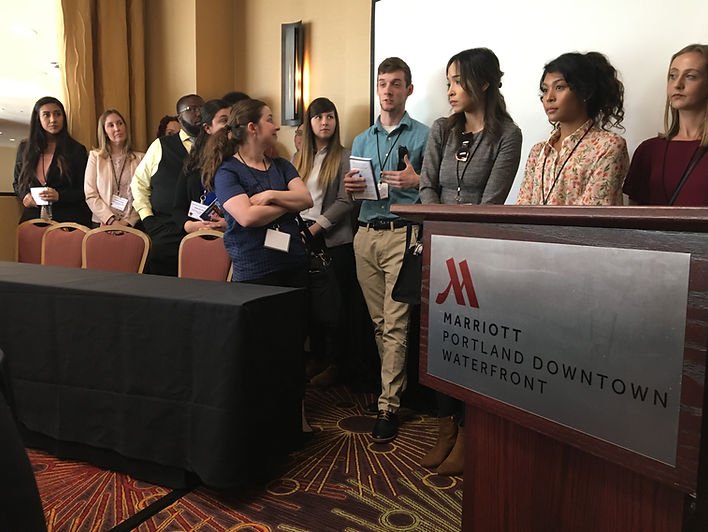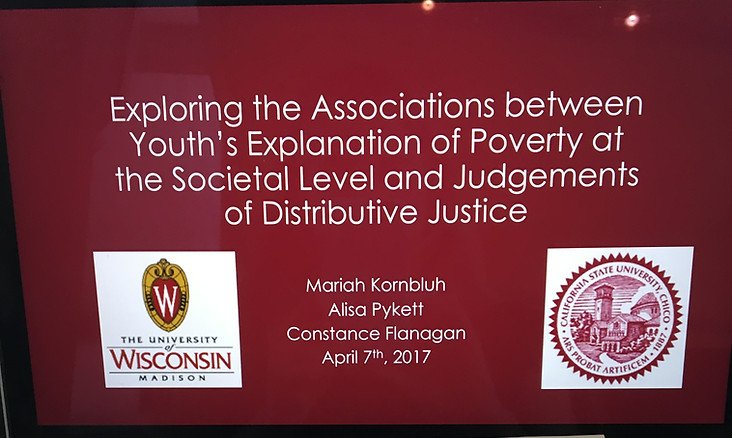Critical Consciousness & Youth Development
Leveraging community-based and mixed methods, we explore how “critical consciousness” – an awareness of social inequality (differential access to and use of resources) and the agency to change it – plays a role in healthy adolescent development.
Critical Consciousness & Educational Attainment (Project)
Racial and ethnically minoritized students are often disproportionally affected by multi-level systems of oppression within their school and community environments.
This study focused on the role of critical consciousness for racially and ethnically minoritized students navigating higher education. Longitudinal surveys, focus groups, ethnographic field notes, and photovoice were used to capture students' lived experiences.
Findings highlighted the important role played by adult helpers in supporting students in relation to student learning, academic achievement, and school engagement at cross-cultural programs and freedom schools. Adult helpers provided aid to students in developing skills in cultural humility, facilitating consciousness raising discussions (i.e., exploring issues of systemic inequality), and exploring and celebrating ancestral resiliency.
Notably, critical consciousness provided students with a framework and language to name experiences of oppression, and instilled in them a sense of agency to combat such systems while persisting within their educational environment
This study was funded by the Spencer Grant Foundation, New Civics Initiative (Principal Investigator: Kornbluh)
Tapping Into Children's Understandings of Inequality (Project)
Tapping into children and adolescent conceptualizations of inequality is key to understanding how they make sense of the world, and how this understanding relates to their own identities and personal narratives in relation to agency, educational attainment, and overall well-being.
In partnership with Dr. Connie Flanagan (University of Wisconsin-Madison), data were collected from 598 participants within the U.S. ranging from 6th to 12th grade.
Findings indicated that Black participants and youth from families that had fewer resources saw U.S. society as more stratified as compared to white participants and those with more resources who chose a more egalitarian image of U.S. society today.
While cognizant of social inequities, these same youth were also more likely to internalize meritocratic beliefs surrounding the underlying mechanisms of inequality, thus potentially adopting deficit focused-narratives that have been tied to poor academic, developmental, and health outcomes.
This project was funded by the William T. Grant Foundation (Principal Investigator: Flanagan).
Civic Activism, Stress, and Coping during the 2020 Presidential Election (Project)
The 2020 U.S. election brought heightened levels of political and social conflict, coinciding with the unprecedented stress and disruption of the COVID-19 pandemic.
This study explored the role of critical consciousness and identity in relation to young peoples' civic activism.
Findings suggest the role of identity, impacted by both privileging and oppressive systems, is associated with distinct types of civic participation (outside of the system versus inside of the system).
Furthermore, opportunities to promote critical consciousness are strongly associated with a range of diverse forms of civic participation (e.g., volunteering, activism in support of the Black community). Findings identify future directions for research design and community programming that can further unpack and bolster racial justice-oriented civic identity development for young people.
This project was funded by the College of Arts and Sciences at the University of South Carolina, and the Society for Community Research and Action (Principal Investigator: Kornbluh)
This study was conducted in partnership with Brooklyn College, Fordham University, Montana State University, North Carolina State University, San Francisco State University, University of Michigan, University of Washington Tacoma, and Wake Forest University.




